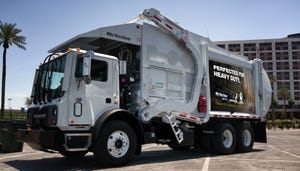legislation: Bringing In Outsiders Gives Family Business A Boost
August 1, 1997
At an upper Midwest waste handling firm, the business is a family affair. G.L., the 68-year-old found-er and owner has three sons and a son-in-law who are all active in the business.
In addition to the family members, there's Howard, the chief financial officer (CFO). While Howard understands that he will never have any equity stake in the family business, this CFO has a lot to be happy about: annual profit-based bonuses and a chance to lead the company's next generation executive team. Howard is the same age as G.L.'s middle son.
The waste firm seems to have handled one of the challenges that family-owned business face: motivating and rewarding key, non-family employees without surrendering ownership.
Many family firms could not grow or survive without outside help. Some company founders sooner or later realize that their heirs have no interest in or aptitude for the business. Others may want to bring in aggressive sales people or, just for variety, new blood.
Fortunately for many small- and medium-sized companies, within and outside the waste management field, attracting outside talent has not been difficult. "It's almost a buyers' market because of all the downsizings by public companies," says a consultant who specializes in family-owned businesses.
The bigger challenge is keeping key non-family employees motivated. Public companies accomplish this by awarding stock or stock options to give employees equity ownership, however small, in the company. Small family firms, however, rarely give away equity to outsiders, fearing the erosion of the family's interests.
"Some families view their ownership as sacred," says a Maryland estate planning lawyer. "They wouldn't dream of giving away 1 percent of the stock to outsiders."
Howard's experience shows that family-owned businesses can comfortably hold on to their equity while allowing senior officers to participate in benefits that family members enjoy.
Howard was working in an accounting firm when G.L.'s company hired him away five years ago. Now, says G.L., the family expects Howard to be "in charge of the executive team" that will succeed him. For his part, Howard says he hasn't any doubt he'll be compensated fairly. In fact, his employment contract provides that, after the trust takes effect, he will receive annual bonuses pegged to a portion of the company profits.
"The arrangement will make sure that [Howard] gets rewards as if he were a shareholder," says G.L.
Not exactly, says Howard. "My bonuses are capped at two times my base salary." So, if company profits soar, he will receive less than family members.
But is Howard complaining? No way. "The owner bends over backwards to make me feel like a family member," he says. "And I do feel like a family member."
Other ways exist to provide such a comfort level, including longer-term bonuses, retirement plan enhancements, generous expense accounts and fringe benefits.
Of course, an easy solution - although, for some firms, it's a matter of principle - is to divest a portion of the stock to outsiders. Jack R., whose family owns a West Coast hauling firm, says he has reduced the total company stake owned by him and his children to 60 percent. For his company, though, letting go of stock was a matter of necessity: Without outside investment, he would not have had enough money to pursue some acquisitions.
Businesses don't necessarily have to surrender stock to create an incentive. Instead, they can "design incentive programs that simulate true equity," says a consultant in the Los Angeles office of Deloitte & Touche. Some companies pretend that certain senior employees own specified numbers of shares.
Then, if the family's real shares appreciate over a defined term, the "shareholder" may collect the cash value of the increase. Closely -held companies would perform an annual appraisal of the stock.
Such phantom-stock plans also can be good incentives. For example, a company might say that if sales reach only 70 percent of a target, then the payoff on the rise in value of the phantom stock will be only 70 percent.
Families can safely delegate daily management to professionals, giving them the tools and freedom to do their job. In turn, these professionals can make a big difference in a business' success.
Acquisitions Canadian Waste Services Inc., a wholly owned subsidiary of Houston-based USA Waste Services, has acquired one landfill, 13 collection operations and three transfer stations from Waste Management Inc.,Oak Brook, Ill., for $180 million.
City Carton Co., Iowa City, Iowa, has purchased the operations and assets of Waste Management Inc.'s (Oak Brook, Ill.) Midwest Division of Durbin Paper Stock, Rock Island, Ill. This newly-acquired recycling facility will serve Durbin's more than 300 recycling customers.
Agreement Leach Co., Oshkosh, Wis., and Wagon Engineering, Kuala Lumpur, Malaysia, signed a license and technical assistance agreement under which Wagon will produce and market the Leach 2RII rear loading refuse collection body at Wagon's new Kuala Lumpur manufacturing facility.
Award The Long Island Chapter of the American Society of Civil Engineers has presented its 1997 Quality of Life Award to the Town of North Hempstead for its newly completed, 1,200 tons-per-day solid waste transfer facility. The new complex features a two-lane drive through tunnel for high speed load out operations and provides for C&D, yard waste and curbside collected recyclabes transfer operations.
Consolidation Superior Services (West Allis, Wis.) has merged its former Lake and Northwest Regions to create the Midwest Region in an effort to streamline the company. The newly created region will be managed by Gary Blacktopp and includes Wisconsin, Iowa, Minnesota, Illinois and Missouri .
Contracts Waste Management Inc. (Oak Brook, Ill.) has been awarded a three-year contract to transfer and dispose of 1,750 tons per day of municipal residential waste from the Borough of the Bronx in New York City.
Denver-based Geraghty & Miller Inc., an international environmental and infrastructure firm, has been awarded a contract to provide environmental engineering services including remediation services, compliance monitoring and engineering design.for U.S. Coast Guard facilities I
Fiscal American Disposal Services Inc. (Burr Ridge, Ill.) has closed on a larger credit facility with its bank group increasing the committed amount from $125 million to $200 million. The amended facility will reduce the company's borrowing costs and increase its financial flexibility.
Grant The Minnesota Office of Environmental Assistance has awarded the City of Hutchinson, Minn., $100,000 to implement its plan to convert the existing NaturTech (St. Cloud, Minn.) containerized composting system from processing wastewater treatment biosolids to treating source separated organics from businesses, schools and residents.
New Distributor Hi-Rise Recycling Systems Inc. (New York City) has signed an agreement with Ecolo Odor Control Systems (Ontario, Canada) for the right to private label its odor control dispensing system in multistory buildings as Wilkinson Odor Control in the United States.
People Presona Inc. (Waco, Texas), a manufacturer of single-ram balers, has named Michael W. Lockman as its new president. Lockman will manage all aspects of the company's U.S. operations.
About the Author(s)
You May Also Like




